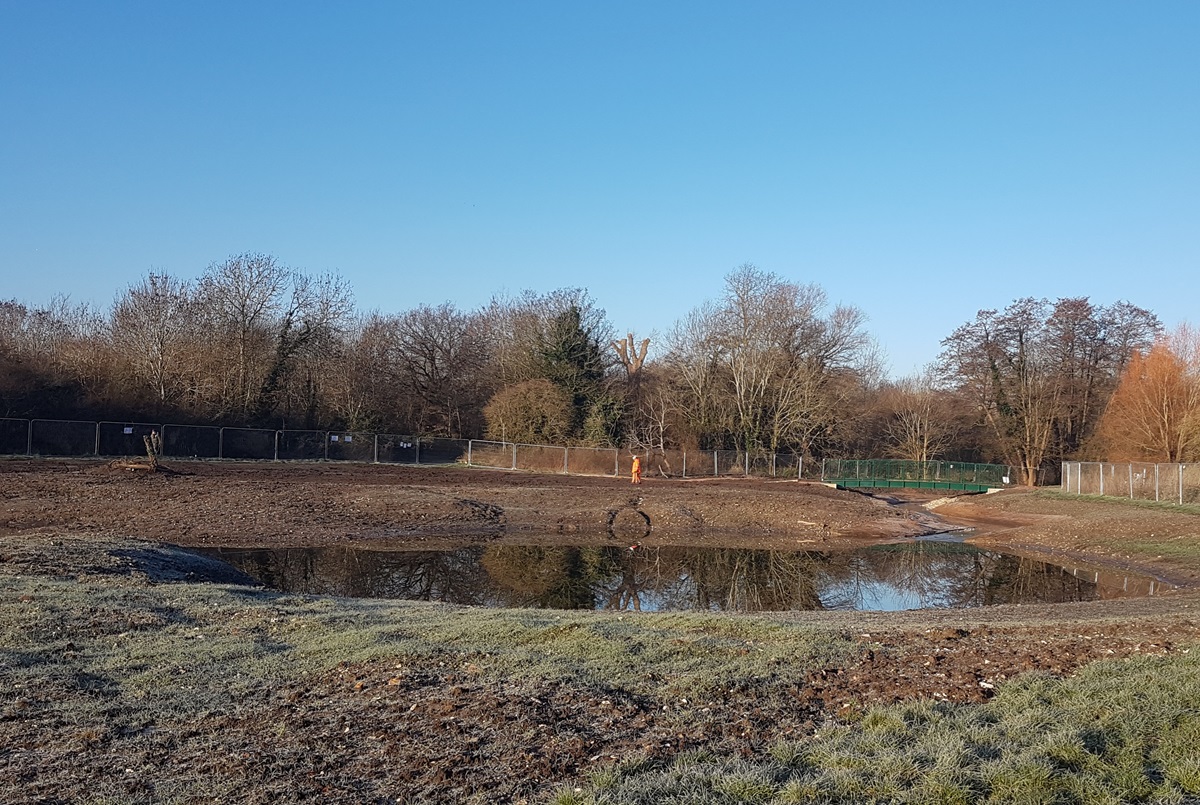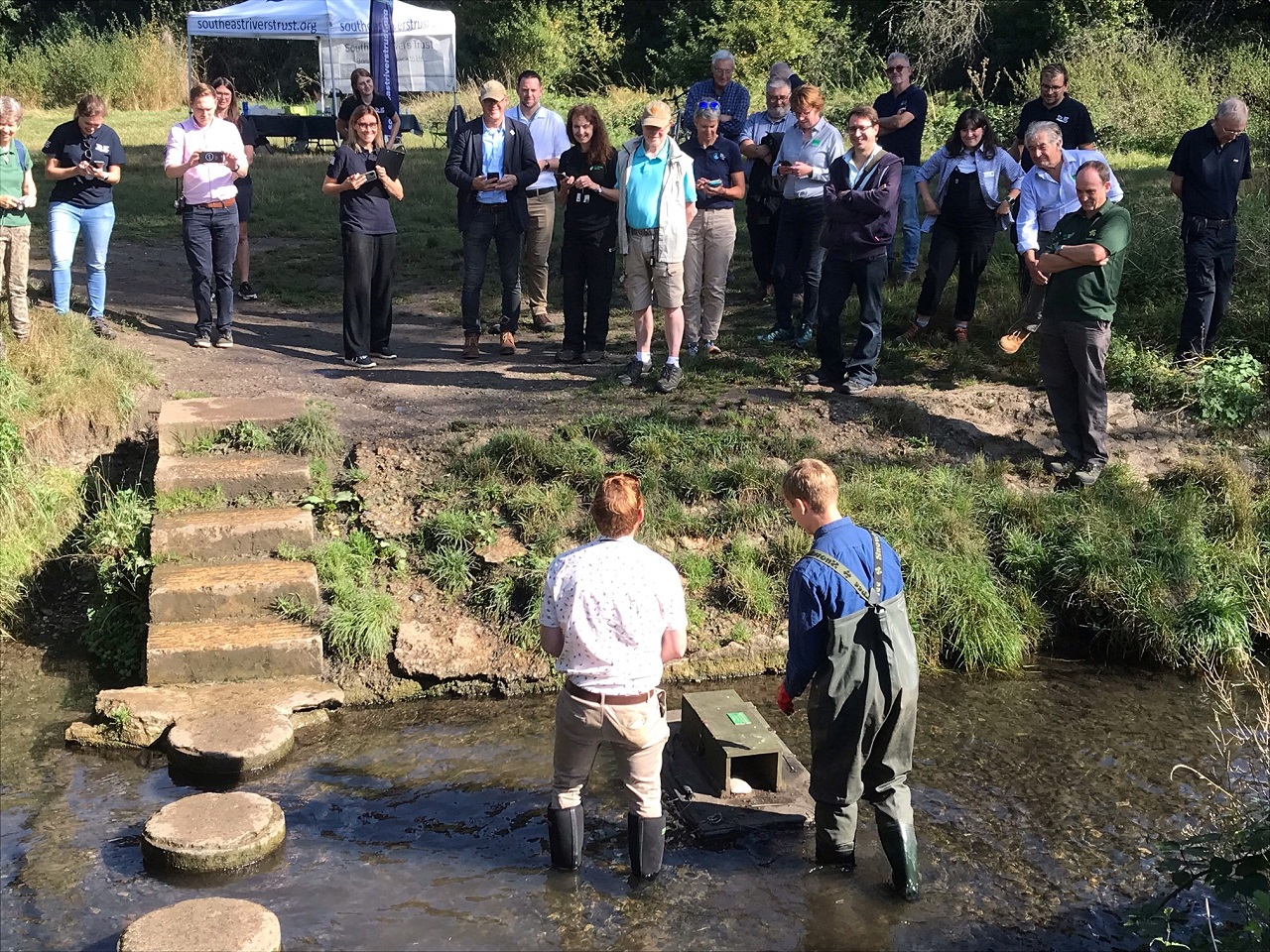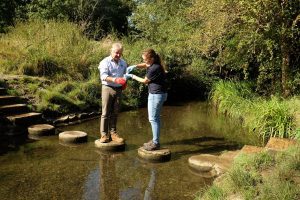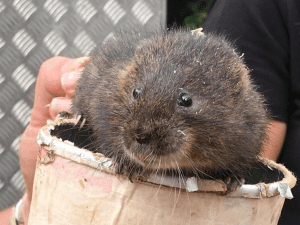Chamber Mead wetlands and their importance to the River Hogsmill were recognised at the 2024 Edie Sustainability Awards in London last night (6th March).
The shortlisting in the Nature and Biodiversity Project of the Year category was a huge honour for everyone involved at the South East Rivers Trust as well as the partners who have helped make the 2,000m2 wetland a reality.
The wetlands were recently completed in Surrey on a stretch of the Hogsmill just south of London. They will filter pollutants and become a haven for wildlife protecting 5km of the river, which is a rare chalk stream.
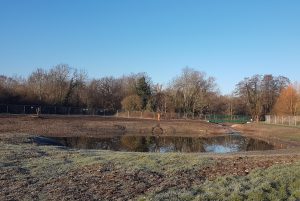
This is a fantastic example of a nature-based solution improving the condition of our rivers. The project has diverted a contaminated tributary into the wetlands, which act as a filter before reconnecting cleaner water into the Hogsmill downstream of the famous Stepping Stones.
One of only about 210 chalk streams in the world, the Hogsmill suffers from urban road runoff, raw sewage discharges and misconnected plumbing that sends drain water directly into the river. A healthy chalk stream’s pure water, stable temperature and flows provide longer growing seasons than other rivers and support important habitat for species such as brown trout and native crayfish.
Creation of the wetlands has been carried out in partnership with Epsom & Ewell Borough Council, which owns and manages the Hogsmill Local Nature Reserve, a popular greenspace which will now benefit from this new community asset.
Bella Davies, Co-CEO of the South East Rivers Trust, said: “We couldn’t be more delighted that the Chamber Mead project has been recognised by the Edie Awards. The project has been more than 10 years in development. It has brought together a wide range of partners and funders to step up and share responsibility for improving water quality in the Hogsmill river, one of the country’s rare and precious urban chalk streams.

“Wetlands such as these are a great way to improve water quality, especially in urban areas, in this case by filtering water from one of the Hogsmill’s headwater tributaries. This water has been contaminated by toxic urban road runoff and sewage from storm tank overflows and misconnected pipes. The water will now enter the Hogsmill after it has been cleaned by the wetlands and help bring back endangered river wildlife such as brown trout and eels.
“We’re also thrilled that the public will see the wetlands develop into a space where wildlife such as dragonflies, birds and butterflies can thrive providing more opportunities to experience nature on their doorstep.”
SERT is now preparing a series of planting days for schools, community groups and the public to take place in the Spring, as well as an open day to introduce the project to the community.
Supported by the Hogsmill Catchment Partnership, the Chamber Mead Wetland project has received funding from The Coca-Cola Foundation, Natural England (through the Species Recovery Programme), the Environment Agency, Surrey County Council, the Rivers Trust, the Zoological Society of London, Garfield Weston Foundation and Thames Water, with in-kind support from the landowner Epsom & Ewell Borough Council.
The new wetlands are part of the wider Replenish programme in partnership with the Coca-Cola Foundation and the Rivers Trust. The aim of Replenish is to restore millions of litres of water in this and other local catchments, in turn improving biodiversity.

